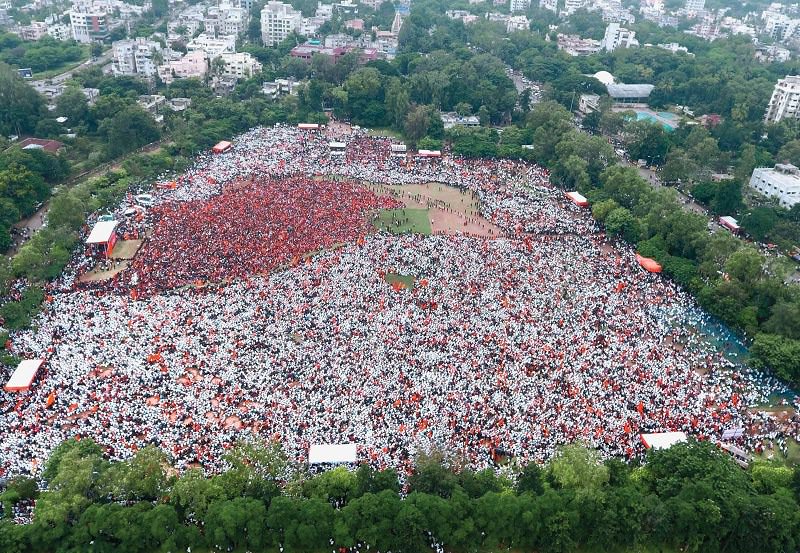The growing clamour for reservation to society's shrinking ability to fulfil the dreams globalisation unleashes

FROM violence to silent marches, the unlikely warriors —the intermediate castes of north and west India, in particular, Jats, Patels and Marathas—are on the war path over reservations. So, the nagging questions emerge: why does everyone want ‘reservations’? Why have certain communities become restless at the present juncture? Where do we go from here?
A short detour of ‘Mandal’ is necessary to put things in perspective. OBC reservations and share in power were the essence of the Mandal issue, though the latter point was not formally part of the recommendations or the policies. By the latter half of the 1990s, it looked as though a consensus had finally emerged on the Mandal (or OBC) question. No political party was opposing OBC reservations and all of them were also keen to accommodate the political claims of communities identified as OBC.
Mandal, of course, was a double-edged weapon. It had possibilities of transcending caste by building caste blocs and opportunity for democratic expansion. Yet it also contained the possibility of strengthening caste awareness and narrowing the concept of democracy to group claims. Its supporters (this writer was among them) expected the former to happen. The way politics played out over the past quarter of a century, the former possibilities were outweighed by the latter. Thus,the unintended consequences of Mandal constitute the larger context in which the present spate of agitations by the middle peasantry castes needs to be understood.
Four processes have coincided in producing the present moment of unrest. Let us first look at the process not directly involving caste. Nobody seems to be wanting to talk about this aspect—the effects of the economic policy process. But it is relevant at two levels.
Diese Geschichte stammt aus der October 31, 2016-Ausgabe von Outlook.
Starten Sie Ihre 7-tägige kostenlose Testversion von Magzter GOLD, um auf Tausende kuratierte Premium-Storys sowie über 8.000 Zeitschriften und Zeitungen zuzugreifen.
Bereits Abonnent ? Anmelden
Diese Geschichte stammt aus der October 31, 2016-Ausgabe von Outlook.
Starten Sie Ihre 7-tägige kostenlose Testversion von Magzter GOLD, um auf Tausende kuratierte Premium-Storys sowie über 8.000 Zeitschriften und Zeitungen zuzugreifen.
Bereits Abonnent? Anmelden

Layers Of Lear
Director Rajat Kapoor and actor Vinay Pathak's ode to Shakespeare is an experience to behold

Loss and Longing
Memories can be painful, but they also make life more meaningful

Suprabhatham Sub Judice
M.S. Subbulakshmi decided the fate of her memorials a long time ago

Fortress of Desire
A performance titled 'A Streetcart Named Desire', featuring Indian and international artists and performers, explored different desires through an unusual act on a full moon night at the Gwalior Fort

Of Hope and Hopelessness
The body appears as light in Payal Kapadia's film

Ruptured Lives
A visit to Bangladesh in 2010 shaped the author's novel, a sensitively sketched tale of migrants' struggles

The Big Book
The Big Book of Odia Literature is a groundbreaking work that provides readers with a comprehensive introduction to the rich and varied literary traditions of Odisha

How to Refuse the Generous Thief
The poet uses all the available arsenal in English to write the most anti-colonial poetry

The Freedom Compartment
#traindiaries is a photo journal shot in the ladies coaches of Mumbai locals. It explores how women engage and familiarise themselves with spaces by building relationships with complete strangers

Love, Up in the Clouds
Manikbabur Megh is an unusual love story about a man falling for a cloud. Amborish Roychoudhury discusses the process of Manikbabu's creation with actor Chandan Sen and director Abhinandan Banerjee